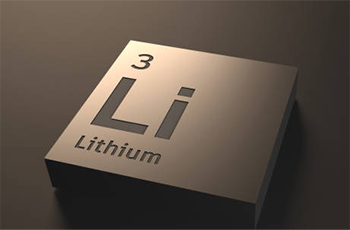Energy Storage Batteries: Unlocking a New Era of Energy Storage
In this era of growing energy demand, energy storage batteries are gradually becoming the focus of attention. Energy storage batteries, especially lithium power packs, bring many conveniences and innovations to our lives with their efficient and reliable performance.
The importance of energy storage batteries is self-evident. With the rapid development of renewable energy sources such as solar and wind energy, their intermittency and instability have become an urgent problem to be solved. And energy storage batteries are like an “energy reservoir”, which can store energy when there is excess power generation from renewable energy sources and release it when needed, thus realizing a stable energy supply. For example, on sunny days, the excess electricity generated by solar panels can be stored by energy storage batteries, and at night or on cloudy days, this stored energy can provide power for households and enterprises.
As a common energy storage battery, lithium power packs have many advantages. First of all, it has a high energy density and can store a large amount of electrical energy in a relatively small volume and weight. This makes it widely used in fields such as portable electronic devices and electric vehicles. Secondly, the charging and discharging efficiency of lithium power packs is high, and it can quickly absorb and release electrical energy to meet the needs of different scenarios. In addition, its lifespan is relatively long, and after multiple charging and discharging cycles, it can still maintain good performance.

In terms of home energy storage, energy storage batteries are playing an increasingly important role. More and more households are beginning to install energy storage battery systems and combine them with solar panels to achieve self-sufficient energy supply. This can not only reduce the electricity cost of households but also improve the reliability and stability of energy. For example, in the event of a power outage, energy storage batteries can provide emergency power for households to ensure basic living needs. At the same time, home energy storage batteries can also participate in the demand response of the power grid, discharge electricity to the grid during peak electricity consumption periods, and obtain certain economic benefits.
In the commercial and industrial fields, energy storage batteries also have broad application prospects. For enterprises, energy storage batteries can be used as backup power sources to ensure the normal operation of production equipment during power outages and reduce losses caused by power outages. In addition, energy storage batteries can also be used for peak-valley electricity price arbitrage, charging during low electricity price periods and discharging during high electricity price periods to reduce the electricity cost of enterprises. In the industrial field, energy storage batteries can be combined with renewable energy sources to provide green and reliable power supply for factories and achieve the goal of energy saving and emission reduction.
However, the development of energy storage batteries also faces some challenges. First of all, the cost issue is an important factor restricting the widespread application of energy storage batteries. Although the price of lithium power packs is constantly falling, it is still a significant investment for some households and enterprises. Secondly, the safety of energy storage batteries is also an issue that needs attention. If the battery is not managed properly, safety accidents such as overheating and fire may occur. In addition, the recycling and reuse of energy storage batteries is also an urgent problem to be solved to reduce the impact on the environment.
To address these challenges, we need to continuously promote innovation and development in energy storage battery technology. On the one hand, researchers need to work hard to improve the performance of energy storage batteries, reduce costs, and improve safety. For example, developing new electrode materials and improving the battery manufacturing process. On the other hand, the government and enterprises also need to strengthen support and investment in the energy storage battery industry, establish a perfect recycling and reuse system, and promote the sustainable development of the energy storage battery industry.
In conclusion, as an important energy storage technology, energy storage batteries have broad development prospects. Lithium power packs, as the leader among them, will play a more important role in the future energy field. We believe that with the continuous progress and innovation of technology, energy storage batteries will bring more conveniences and surprises to our lives and unlock a new era of energy storage.
Contact us
- Email:[email protected]
- Tel: +86 13651638099
- Address: 333 Fengcun Road, Fengxian District, Shanghai
Get A Quote Now!
Related product links are available directly
Site storage products:Site storage products 归档 – (energystoragecontainer.com)
Lithium Battery:Lithium Battery 归档 – (energystoragecontainer.com)
Read more

Home Solar Panel Selection Guide: Match Your Energy Needs
When it comes to optimizing your energy efficiency, understanding how to effectively stack your solar battery storage system is key. With increasing energy demands and the push for sustainability, many homeowners are looking into home battery solutions.

How to Stack Home Energy Storage?
When it comes to optimizing your energy efficiency, understanding how to effectively stack your solar battery storage system is key. With increasing energy demands and the push for sustainability, many homeowners are looking into home battery solutions.

Solar Generator Kit: Creating a Solution for Home Energy Self-Sufficiency
As homeowners look to reduce dependence on traditional power grids, solar generator kits offer a practical and sustainable solution. These kits combine essential components like solar pv modules, energy storage batteries, and inverters, helping households tap into renewable energy sources and achieve self-sufficiency.

Economic Analysis of Household Energy Storage Systems: Investment Returns and Cost-Effectiveness
As more homeowners consider installing home energy storage batteries and battery for home energy storage systems, evaluating the financial return becomes key.
